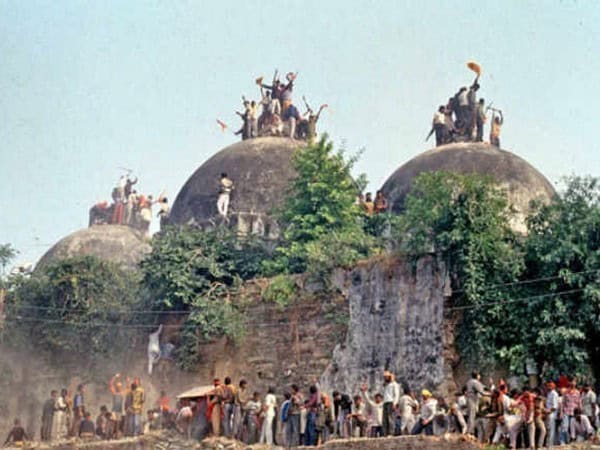The Ayodhya case is not just a Hindu-Muslim conflict as it is wrongly projected but is a typical property dispute in which land, a built structure, and the possession of land are being fought over by three parties.
The three parties in the case namely the Sunni Wakf Board, the Nirmohi Akhara and the Ram Lalla Virajman have been fighting the case on very distinct arguments of law, memory and faith.
Ram Lalla Virajman
Ram Lalla Virajman which enjoys the support of Vishwa Hindu Parishad (VHP) makes a faith-based argument that Hindus believe in the unquestionable divinity of Lord Ram and that the court must respect the sentiments of the Hindu community. On the other hand, the Nirmohi Akhara relies on the memory of the conflict to argue that it has an ultimate right over the land. While the UP Sunni Wakf Board evokes the centrality of law to make a case for the land (not the mosque).
The Wakf Board officially claims to represent Muslims while the Ram Lalla Virajman claims to represent Hindus, However, the Ram Lalla Virajman doesn’t rely solely on Hindu faith for its legal argument and the Nirmohi Akhara’s presence as a legitimate stakeholder in the case undermines this obvious communalisation of the Ayodhya dispute.
Though the Nirmohi Akhara completely rejects the Sunni Wakf Board’s land ownership claim, it does not go with the Ram Lalla Virajman for the sake of Hindu unity either. The lawyer representing the Nirmohi Akhara has recently criticised the Ram Lalla Virajman for transforming the idols of Ram into a legal party in the Ayodhya dispute.
Nirmohi Akhara
The Nirmohi Akhara makes a faith-based argument and claims an inalienable right over this pious land as ‘shabait’ (devotee). It also seeks recognition of its ownership claim saying it has had possession over the land, including the mosque, since 1934. It invokes the collective memory associated with the land to justify its claims.
According to the Print, the Nirmohi Akhara challenges the Vishwa Hindu Parishad’s grand Hindu politics on two counts. First, it opposes the VHP’s claims on historical grounds, arguing that it has been the main contender since 1934. Second, it also turns down the Hindu nationalist project of the Ram Lalla Virajman by highlighting the localised nature of the conflict.
UP Sunni Wakf Board
The report added that the UP Sunni Wakf Board, the only party that formally claims to represent Muslim interests no more argue for reclaiming the mosque or its reconstruction and does it adhere to its old position — once a mosque always a mosque — as the main legal argument. Instead, it concentrates on the land on which the Babri Masjid once stood and its legal status as an Islamic wakf property. It adheres to scientific history for arguing its case.
The Print concludes it is clear that each party identifies its own comfort zone and makes conscious efforts to redefine the ownership of land into a conflict of civilisations between Hinduism and Islam. The courtroom, in this schema, has been transformed into a theatre, where different narratives of conflict are enacted in a way to sustain the conflict.

